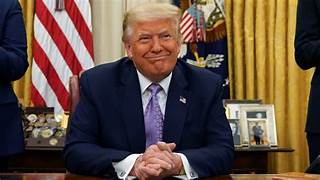
Pakistan to Nominate Donald Trump for Nobel Peace Prize as a 'Genuine Peacemaker'

 :
| Updated On: 23-Jun-2025 @ 11:06 am
:
| Updated On: 23-Jun-2025 @ 11:06 amSHARE
Pakistan has announced its intention to nominate former U.S. President Donald Trump for the Nobel Peace Prize, recognizing his claimed role in de-escalating tensions between nuclear-armed India and Pakistan. This decision follows a surprise ceasefire announced by Trump in May, which effectively ended a four-day conflict between the two South Asian rivals. Trump has repeatedly stated that his diplomatic efforts prevented a nuclear war and saved millions of lives, although he lamented not receiving due recognition for his actions.
Pakistan concurs that U.S. diplomatic intervention played a key role in halting the fighting, though India maintains that the ceasefire was a bilateral military agreement with no external mediation. In a statement posted on X (formerly Twitter), the Pakistani government lauded Trump’s “strategic foresight” and “stellar statesmanship,” emphasizing his diplomatic engagement with both Islamabad and New Delhi during a volatile period. They characterized his involvement as a testament to his identity as a "genuine peacemaker" and his dedication to resolving conflict through dialogue.
Governments are allowed to nominate individuals for the Nobel Peace Prize, though neither Washington nor New Delhi issued immediate responses to Pakistan’s announcement.
Some analysts in Pakistan believe the nomination might be a strategic move to influence Trump’s stance on global issues—particularly to dissuade him from supporting any Israeli military action against Iran’s nuclear facilities. Pakistan has been critical of Israel’s aggressive stance, labeling it a threat to regional stability and a breach of international law.
Trump, on the other hand, continues to cite various international peace achievements, including the India-Pakistan ceasefire and the Abraham Accords—a series of normalization agreements between Israel and several Muslim-majority countries during his first presidential term. Despite this, Trump expressed frustration on social media, claiming he would never receive the Nobel Peace Prize regardless of his efforts.
He has also offered multiple times to mediate the long-standing Kashmir dispute between India and Pakistan. Islamabad, which has consistently called for international intervention in Kashmir, welcomed Trump’s openness. However, his position has disrupted traditional U.S. foreign policy in South Asia, which typically leans toward supporting India as a strategic counterbalance to China. This shift has strained previously strong ties between Trump and Indian Prime Minister Narendra Modi.
Interestingly, the nomination announcement coincided with a rare and symbolic event: Pakistan's army chief, Field Marshal Asim Munir, met Trump for lunch at the White House. This marked the first occasion a Pakistani military leader was hosted in Washington while a civilian government remained in power in Islamabad.
Trump was scheduled to meet Modi at the G7 summit in Canada the previous week, but the meeting did not occur as Trump departed early. However, the two leaders later spoke by phone, during which Modi reiterated India’s longstanding position that it rejects all third-party mediation on the Kashmir issue.
While some in Pakistan see the nomination as politically strategic and beneficial, others are highly critical, particularly due to Trump’s support for Israel during its war in Gaza. Pakistani journalist Talat Hussain harshly criticized the move, questioning Trump's eligibility for any peace award and warning of the potential reversal in Trump’s position, especially toward Modi.
Overall, the nomination is seen as both a diplomatic signal and a deeply polarizing decision within Pakistan.